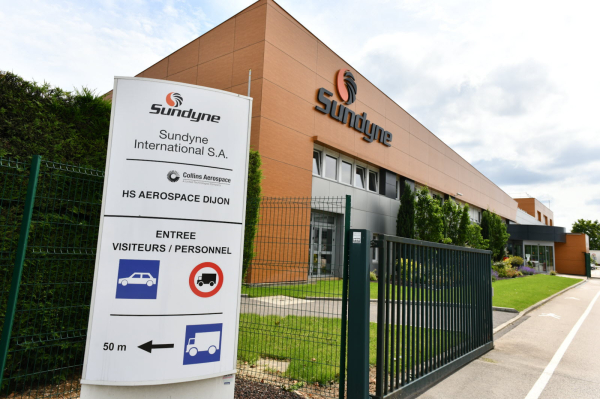
The solution is not to withdraw funds but to invest differently. The millions of people who rely on this aid cannot be forgotten (Photo: EU Civil Protection and Humanitarian Aid)
European officials and humanitarian organisations gathered at the European Humanitarian Forum (EHF) in Brussels this week to discuss forgotten humanitarian crises around the world and how to fund them.
This third edition of the forum took place in an ever more competitive space for humanitarian funding, amidst growing protection concerns, increasingly multi-faceted and interlinked crises, and increased threats posed by the climate crisis. But sustained, collaborative action between development and humanitarian actors can prevent needless suffering and lay the foundations for a better future.
-

17 million people need humanitarian assistance in the Central Sahel, according to the UN (Photo: European Commission)
West Africa is at risk of turning into a blind spot. Armed conflict and the effects of climate change are driving unprecedented levels of humanitarian need, displacement and hunger. Some 17 million people need humanitarian assistance in the Central Sahel (Burkina Faso, Niger and Mali).
But at a time of increasing global challenges, the funding gap for humanitarian aid is increasing. The response plans for these countries are chronically underfunded, with funding gaps of up to 69 per cent in 2023. If we are to succeed in both addressing urgent needs and delivering sustained development solutions, then we need to work differently.
Humanitarian assistance alone cannot be a long-term solution. These countries need a comprehensive approach that coordinates the role of humanitarians in providing emergency relief with development actors pushing long-term, sustainable solutions.
Burkina Faso, Mali and Niger are three of the most under-developed countries globally, facing political instability and economic challenges. The repercussions are stark with parts of these countries facing violent conflict and ill-equipped to weather the storms of climate change.
Climate change is increasing the frequency of droughts and floods and driving people from their homes, providing fertile ground for inter-communal violence and migration. The social fabric of communities is fraying with one community in two reporting conflicts between farmers and herders, a 50 percent increase since 2022.
Access to basic social services has long been inadequate. Poverty, conflict and poor infrastructure mean basic services like healthcare and education are all too often insufficient or not accessible — particularly for those with the highest vulnerabilities, including rural populations, and in particular children and women. One child in four has no access to primary school. A coordinated effort between humanitarian and development actors is imperative to improve access to basic services.
This will also include boosting infrastructure and communications in order to open the road to markets and commercial exchanges.
Today, the delivery of humanitarian assistance in the Central Sahel is hampered by access constraints. In Mali and Burkina Faso, ongoing conflict and insecurity have led to increased restrictions on movement and complicated logistics for humanitarian actors. In Niger, disruption in aid deliveries means crucial supplies like food and medicine are not reaching those in need. It is increasingly difficult, costly, and sometimes life-threatening for humanitarians to provide life-saving assistance.
Sustainable solutions, bringing together humanitarian and development assistance, can deliver long-term change. People across the Sahel are bearing the brunt of decades of instability, economic marginalisation, and insufficient investment in human development. The international community must continue to support these countries. Sahelian civil society, including women’s rights groups and activists, needs support to maintain a healthy civic space. Supporting local initiatives can strengthen social cohesion, conflict mediation and trust between different stakeholders.
Investing more in anticipatory action, prevention and early warning systems can reduce the impact of crises and therefore reduce response costs. Programmes supporting communities to build resilience are effective in addressing hunger and food insecurity, and providing sustainable solutions for vulnerable households instead of short-term fixes like selling off livestock.
Sign up for EUobserver’s daily newsletter
All the stories we publish, sent at 7.30 AM.
By signing up, you agree to our Terms of Use and Privacy Policy.
Humanitarian actors also need to invest more in anticipating crises and in preparedness, so they are better able to respond rapidly to the onset of crises. Doing so will reduce costs significantly and save more lives by facilitating a swifter and more efficient emergency response.
Donors have generously funded life-saving assistance for millions of vulnerable people across the Sahel. But there is a concerning trend that some donors are withdrawing or reducing funding, right at the time when the crisis is deepening and expanding beyond the Central Sahel. The solution is not to withdraw but to invest differently. The millions of people who rely on this aid cannot be forgotten — the international community, including the EU, must continue to engage in West Africa, and particularly the Sahel.
To break the cycle of crisis and strengthen resilience, we need greater collaboration, coordination and coherence between humanitarian and development actors. These efforts must be focused on fragile settings and marginalized communities to ensure we reach the most vulnerable and thus avoid a further escalation of the crisis and build a sustainable future for tomorrow.
In the face of unprecedented challenges, the Sahel demands immediate and sustained attention.
Through collaborative efforts, addressing root causes, and investing in sustainable solutions, we can not only respond effectively to current crises but also foster a resilient and secure future for the people of the Sahel. The time for comprehensive action is now, ensuring that the millions relying on aid in the Sahel are not forgotten by the international community.
The West and Central Africa branches of the following organisations are co-signatories to this oped: Action Contre La Faim, Bioforce, CARE, Diakonie Katastrophenhilfe, Danish Refugee Council, ICVA, INTERSOS, International Rescue Committee, Mercy Corps, Norwegian Refugee Council, OXFAM, Plan International, Project 21, Save the Children, Terre des hommes, UNFPA.
Source: euobserver.com



